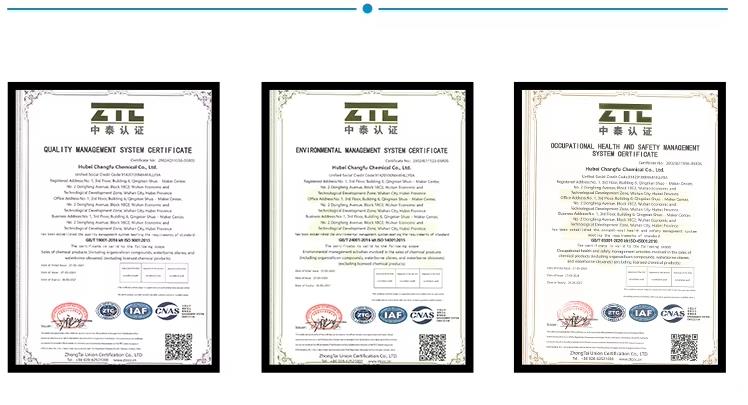Description
1,4-Bis(triethoxysilyl)benzene, ChangFu® BPH33 is a dipodal silane monomer with two triethoxysilyl groups. In the presence of water, it can undergo hydrolysis and condensation reactions. It can also undergo addition reactions with unsaturated compounds to form chemical bonds. Its unique properties make it workable for a variety of fields, ranging from organic synthesis to environmental applications.
Synonyms:
Triethoxy-(4-triethoxysilylphenyl)silane; Benzene, 1,4-bis(triethoxysilyl)-; BTEB; 2615-18-1
Features
Reactive dipodal silane.
Known for its catalytic activity and bioactivity.
Hydrolysis pattern differing from that of conventional trialkoxysilanes.
Can undergo condensation reaction and addition reaction.
Description | 1,4-Bis(triethoxysilyl)benzene |
Product No. | ChangFu® BPH33 |
CAS No. | 2615-18-1 |
Formula | C18H34O6Si2 |
Purity | min 95% |
Color | Colorless |
Appearance | Clear liquid |
Applications
ChangFu® BPH33 can be used as an important additive in the preparation of porous organic polymers and bridged polysisesquioxanes with great adsorption capacity in environmental protection.
ChangFu® BPH33 can be used in fuel cell applications to synthesize hybrid membranes showing high water absorption capacity and stable proton conductivity.
ChangFu® BPH33 can be used as a reagent and a laboratory chemical, especially for the synthesis of chemical compounds.
Synonyms:
Triethoxy-(4-triethoxysilylphenyl)silane; Benzene, 1,4-bis(triethoxysilyl)-; BTEB; 2615-18-1
Package
Offered in 25L PE pails and 200L steel drums.
Custom packaging is available.
Storage
Stored in a cool, well-ventilated place.
Keep container tightly closed.
Transportation
For more details, please see the corresponding Safety Data Sheet.
About ChangFu Dipodal Silanes
ChangFu Chemical is proud to supply a series of non-functional dipodal silanes with outstanding properties. These dipodal silanes are primarily employed as excellent coupling agents and adhesion promoters in the preparation of coatings and sealants. Due to their high reactivity, they are also able to act as crosslinking agents and cross link with a variety of organic and inorganic substrates. Used in combination with conventional silane coupling agents, these non-functional dipodal silanes can greatly improve the bonding performance, thermal stability, and mechanical properties of various polymers and composites. If any questions about ChangFu dipodal silanes listed below, please contact us freely.


